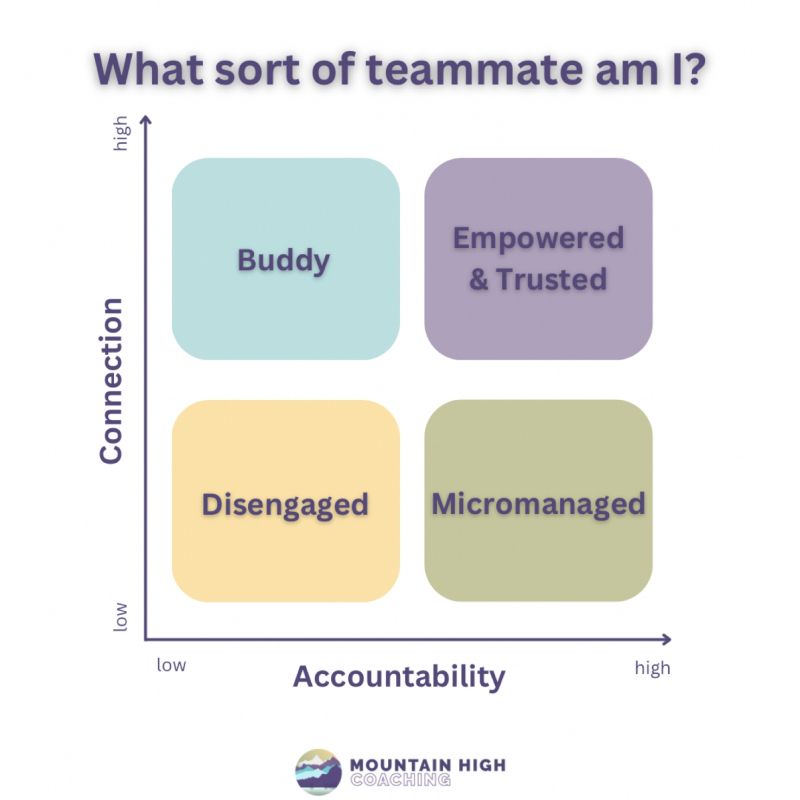People aren’t robots, we haven’t been programmed to ‘do’ on command. We are unique, complex and unpredictable. That for me was always the attraction of leadership: the unpredictability and the challenges. It was a commitment, a calling. Demanding. And fun!
With people leadership comes responsibility. Part of that is to make sure people on your team are learning, growing and following the career paths that are right for them. This requires a leader to be curious, to discover what makes each individual on their team unique, what their talents are, what they aren’t so good at, what their blind spots might be, what their aspirations are, and then supporting them to reach the milestones that will get them to their ultimate career goal.
This also means not promoting people into roles they aren’t ready for or don’t have the talent for, especially where they would be required to lead other people. And especially when they don’t have the desire and commitment to ‘do’ people leadership well.
We’ve probably all worked for companies where the only way to go up the career ladder towards a better reward package was taking on the role of people leader. Yes? So, yay, you get the promotion, the title, the money, but oh heck, now you have to put up with all these people, every day, all needing something from you, all with their own set of expectations of you, all watching and judging you for what you do and say. All the time!
If that’s a reality you weren’t ready for and never truly desired in the first place, then it’s a very uncomfortable and stressful place to find yourself. And it’s really unfair on the team you were given to lead.
Leadership is a commitment to others, not just a way to a healthier pay packet. But if that’s been your only option for better pay, it’s like being forced up the shaky corporate ladder with no safety net, and perhaps little support. And sadly you find that more money really doesn’t compensate for this new found stress.
And then what does the leader do who put those reluctant or incompetent new leaders in that no-win situation to start with? Usually complain that they aren’t doing it right. But what were they expecting?
If you have talented, experienced people who are very good at their jobs and really know their stuff, then reward them appropriately for that, recognise their level of expertise and let them bring value to your organisation in the way that uses their talents and doesn’t force them into people leadership roles they really don’t want and don’t really have the talent for.
By putting talented people in the wrong role, a) it’s lazy practice and b) you’re not getting the value of their true talents, and, ultimately, c) you’re just moving them closer to the exit door. It’s a lose-lose situation all round. Why would you do that to your otherwise talented people?
What has your experience been with this?









